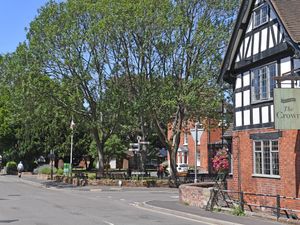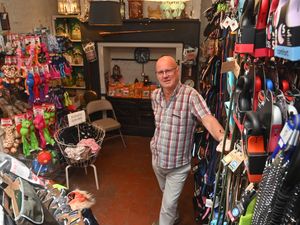'Progressive' Harry and Meghan should not bank on an easy ride
The Queen famously declared 1992 to be her 'annus horribilis', reflecting on a year which saw three of her four children endure marital break-ups, was dogged by salacious media reports, and saw Westminster Palace destroyed by fire.
And if the early signs are anything to go by, 2020 isn't looking too hot either. The Queen began the year having to deal with the fall-out from Prince Andrew's disastrous television interview about sex allegations. Now she finds herself having to handle the shock announcement that the Duke and Duchess of Sussex plan to "step back as 'senior' members of the Royal Family' and "carve out a progressive new role within this institution".
The announcement was met with a furious response from the usual suspects – arch-polemicist Piers Morgan was hot off the blocks to express his outrage, with a bit of colourful language thrown in for good measure.
"Who the f*** do they think they are?" he said with characteristic subtlety.
"I've seen some disgraceful royal antics in my time, but for pure arrogance, entitlement, greed, and wilful disrespect, nothing has ever quite matched the behaviour of the Duke and Duchess of Sussex."
More worryingly for the controversial couple, the Queen was also said to be not in the least amused that they had announced their news without telling her first.
And royal courtiers, who are said to have strongly advised Harry and Meghan against this course of action, have reportedly accused the couple of "wanting their cake and eating it."
It is fair to say that the Queen has had to deal with her fair-share of crises during her near-68-year reign, but this is the first time one of her closest family members has chosen to break away with the monarchy.
The news has drawn inevitable comparisons with the Abdication Crisis of 1936, although as seventh in line to the throne, Harry's decision will not create the same constitutional crisis.
Complicated
But the decision by Harry and Meghan is also a symbol of the younger members of today's Royal Family are less willing to conform to convention and tradition than their predecessors.
When Edward VIII wanted to marry American divorcee in 1936, there was no question of him retaining the throne. And when he eventually decided to abdicate – he is said to have written his abdication speech while a guest of the Earl of Dudley at Himley Hall – his younger brother Albert had little choice but to reluctantly take up the role.
Princess Margaret's engagement to the divorced Group Capt Peter Townsend in 1953 also sparked a constitutional crisis, with the Government and the Church of England firmly against the union. The situation was complicated still further by the Royal Marriages Act 1772, which required any member of the Royal Family under the age of 25 to gain the monarch's permission before getting married. The Queen, as head of the Church of England, found herself in an impossible situation. Prime Minister Winston Churchill arranged for Townsend to be posted overseas, at least until Margaret was 25, and did not need her sister's permission to marry in a civil ceremony, and in 1955 Margaret announced the engagement was off.
She said: "Mindful of the Church’s teachings that Christian marriage is indissoluble, and conscious of my duty to the Commonwealth, I have resolved to put these considerations before others." She married Antony Armstrong-Jones in 1960, but the marriage was dogged by reports of Margaret's infidelity. In 1978 she became the first senior member of the Royal Family to divorce.
An early sign that Harry and Meghan were seeking greater independence from the monarchy came when they declined their son, Archie, an hereditary title, insisting that he would instead be brought up as a private citizen. It could be said he was following the precedent set by Harry's aunt, Princess Anne. Her first husband, Capt Mark Phillips, broke with convention when they married in 1973 by declining a peerage. This meant their children Peter and Zara would not inherit titles of their own, and they have carved out careers of their own, Zara in equestrian, fashion and the charity sector, and Peter in the motorsport and banking industries.
Indiscreet
But while Peter and Zara Phillips may represent the template Harry and Meghan wish to follow, there are numerous members of the Royal Family who have found that combining private business interests and royal duties can be a difficult balancing act. Prince Edward's foray into TV production led to accusations of him using his royal connections for commercial gain, and he caused further controversy in 2002 when one of his film crews were accused of invading Prince William's privacy while at university. Prince Charles was reported to have been furious about the incident. By this time Edward was married to public relations officer Sophie Rhys-Jones, who also found the difficulties of balancing royal life with the needs of business when she was recorded making indiscreet comments about the Royal Family and other leading public figures in an undercover sting by the infamous News of the World reporter Mazher Mahmood. In 2002 Edward and Sophie announced they would be giving up their business interests and become full-time members of the Royal Family.
The business activities of the Queen's cousin, Prince Michael of Kent have also come in for media scrutiny. Michael, who renounced his claim to the throne to marry a Catholic divorcee, does not receive payments from the civil list, and has run a consultancy business since his retirement from the Army in 1981. However, his links to the Russian billionaire Boris Berezovsky have attracted media interest, and there were also claims that he and his wife were paying cut-price rents on their apartment at Kensington Palace.
One thing is clear. An absence of full-time royal duties does not mean that members of the Royal Family can escape public opprobrium.
It is clear that Harry and Meghan have found the amount of scrutiny that comes with royal status hard to bear. But, unless they quickly carve out a successful role for themselves as semi-detached members of the royal firm, they could find that their lives are about to become even harder.





